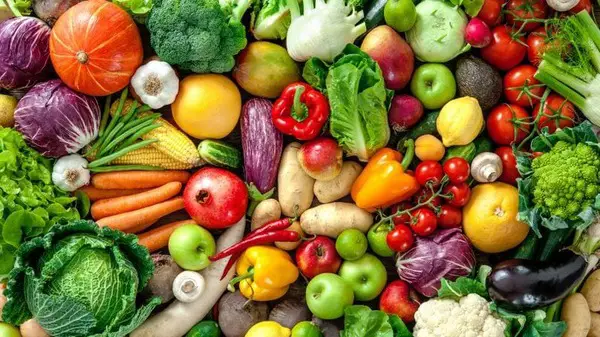Nitric oxide is a colorless gas that is formed in the human body. Once considered merely a toxic air pollutant, nitric oxide is now known to play a vital role in human health and the cardiovascular system in particular.
Dietary nitrates are precursors for nitric oxide production which helps the cardiovascular system. Nitric oxide helps to regulate blood pressure by dilating blood vessels. It is produced in endothelial cells, which line all blood vessels. The nitric oxide then diffuses into adjacent smooth muscle cells in the blood vessel walls, triggering a process that ultimately leads to vasodilation and increased blood flow.
Nitric oxide is also involved in healthy endothelial function. It helps atherosclerosis by prevent white blood cells and platelets from adhering to the vessel walls. Nitric oxide also inhibits oxidation of low-density lipoproteins, another step in the atherosclerotic process. These two steps help to promote cardiovascular health.
Why Vegetables are healthy for you
Nitrate, a compound found in certain vegetables, is one of the many reasons vegetables are healthy for you. Vegetables high in nitrates include celery, water cress, lettuce, beetroot, rhubarb, spinach, turnips, and arugula. When these foods are consumed, nitrates are converted into nitic oxide. The nitrates are first converted to nitrite by bacteria in the mouth and stomach, then turned into nitric oxide in the rest of the body. Keep in mind your use of mouthwash; while it destroys bad bacteria, it is not selective; it also destroys the nitrates being discussed here.

Nitrates consumed by eating vegetables are very different from sodium nitrites. Sodium nitrites are used in the process of “curing” food. Often associated with meats, sodium nitrate is used to prevent food spoilage and bacterial contamination. Sodium nitrate is widely regarded as a toxic and an undesirable food additive. Often found in bacon, cold cuts and hot dogs, sodium nitrates are often associated with various cancers. Nitrates from vegetables are considered harmless and beneficial.
Nitric oxide is what is considered an unstable molecule and therefore breaks down quickly in the bloodstream. One has to consider how to limit its breakdown and even to increase its stability. One way to limit the breakdown of nitric oxide breakdown is by consuming antioxidants. Vegetables that are high in nitrate are often high in antioxidants. Antioxidants are found in all foods, but primarily in plant origin foods.
Nitric Oxide Foods
Foods rich in Vitamin A are often antioxidant rich. Some of the top vitamin A antioxidant rich foods are sweet potatoes, carrots, kale and pumpkin. Sweet potatoes contain the antioxidant beta-carotene. One can identify beta-carotene foods often by their orange coloring. The skin of sweet potatoes has the highest concentration of nutrients.
Foods rich in Vitamin C are rich in antioxidants as well. When one thinks of Vitamin C, one immediately thinks of oranges. Other vitamin C rich foods include strawberries, red and green bell peppers and broccoli and brussels sprouts. Strawberries, vitamin C rich, belong to a group of phytonutrients called anthocyanins. Anthocyanins are a group of fruits and vegetables that can be identified by their blue, purple or red color. Not all anthocyanins are equally rich in in antioxidants.
Foods rich in Vitamin E are also rich with antioxidants. Various nuts almonds, hazelnuts as well as sunflower seeds are high in vitamin E. Nutritionally, they can be enjoyed raw, roasted or made into nut butters for their nutritional content. Avocados are rich in Vitamin E, as just half of a fruit will provide nearly 20% of one’s daily vitamin E needs. Rich in vitamin C, avocado is also heart healthy in that the monounsaturated fat in it helps to lower LDL cholesterol and raise HDL cholesterol.
All of above is for information only, and is not to be taken as medical advice. Please see your medical doctor for formal advice.
Barry Schustermann
Follow me on X @BarrySchust
Follow me on Facebook @ Barry Schustermann

